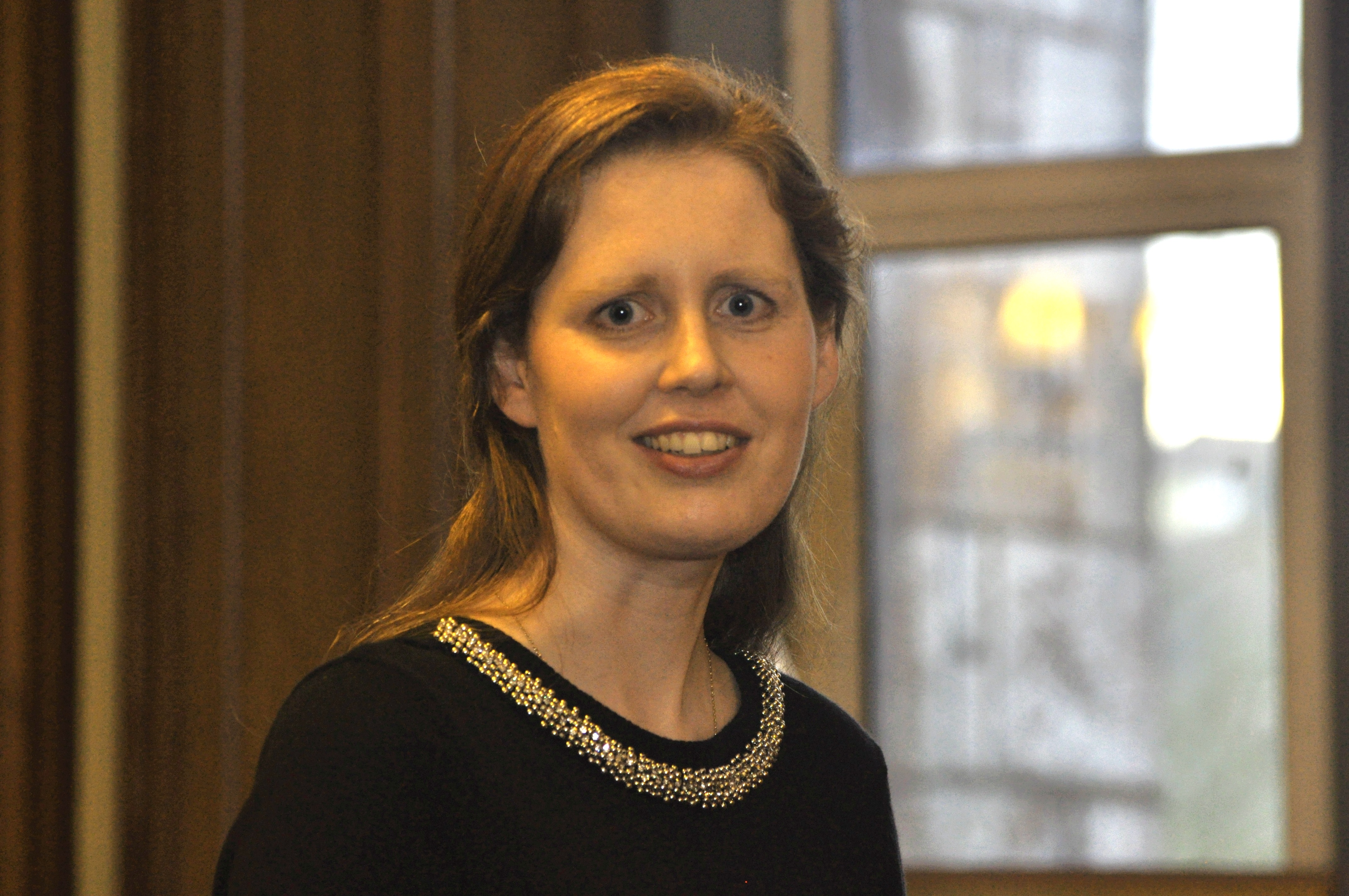In This Section
- Home
- About us
- People
- Courses
- Current Students
- Research
- Shaping Society
- Careers
- News and Events
- Alumni
- International Applicants
- College of Business and Law
- Scholarships and Prizes
- European China Law Studies Association Annual Conference 2025
Dr Maria Cahill's "Flipped Classroom" Inspires Students To Develop Their intellectual Autonomy

At a time when debates in the public sphere are characterised by soundbite, emotional appeals and fake news, it has perhaps never been more important to be able to tell good arguments from bad arguments.
Law, as a discipline, is based on the premise that the best outcomes are discoverable when the best arguments on both sides are pitted against each other, and therefore law is particularly wedded to effective processes of argumentation in the development of conclusions that are capable of being defended through reason.
The Advanced Legal Reasoning module offered at UCC School of Law is designed to foster students’ ability to think critically, to reason confidently and to reach sound conclusions through such collaborative processes of argumentation.
Designed by Dr. Maria Cahill seven years ago, the module provides a space within which final year students can develop the virtues of intellectual autonomy, courage, humility and charity through a modified version of the “flipped classroom” phenomenon.
This ‘Inverted Learning’ approach means that students take first exposure responsibility, reading and interpreting judgments themselves before participating in class discussions. In the absence of a prepared package of knowledge which they must passively accept, learn off and regurgitate, students instead learn how to interpret the material on their own and with their peers, thereby developing intellectual autonomy.
Without the safety blanket of lecture notes, they must express their own convictions about the strengths and weaknesses of the arguments being explored, all the while doing so without knowing if their views conform with those of the group or the teacher. This develops intellectual courage.
Law students should be able to identify fallacious arguments, expose contradictions, construct counterarguments, assess their strength and confidently employ the dialectical process in order to arrive at the most defensible conclusion.
When the module was first introduced by Dr Cahill in 2011, there was only one other Legal Reasoning undergraduate module available in the English-speaking world, which was—and is—taught by Dr James McLean at the University of Southampton.
Now, seven years after the module was first introduced at UCC School of Law, Dr Cahill reflected on its success in an article published in the Asian Journal of Legal Education.
Motivated by the “diminished sense of the primacy of reason among law students”, Dr Cahill created a module that included topics such as theories of interpretation and precedent, consequentialism, proportionality and jurisdictional issues, as well as the tensions between universal rules and “hard cases”.
Using the Inverted Learning approach, each topic is paired with a particular legal decision for students to critique while sitting around a boardroom table during an hour long discussion where Dr Cahill remains silent during the first 20 minutes.
During this opening phase, students bring conflicting and sometimes unique perspectives that must invariably be defended through reason.
In this free exchange of ideas, both insightful and banal comments are made, agreements and disagreements emerge, mistakes are made and sometimes go uncorrected, discussions veer off track and unimportant issues can lead the group down rabbit holes. In other words, these discussions are in many ways similar to the discussions that take place in the public sphere everyday.
During the remaining portion of the lecture, Dr Cahill is on hand to correct any remaining errors, refocus the discussion on the key points, and help to sharpen the students’ appreciation of the good and bad arguments, driving the learning process as students identify the ill-founded presumptions, misplaced criticism and improper logical leaps in their own arguments and the arguments of others.
The open nature of the discussion creates an environment where students must actively co-operate to correct mistakes while wrestling with opposing arguments. In turn, students bring the best of their intellectual strength to the table as a team, where each player inspires those around them to contribute.
If these students one day soon become the lawyers who are arguing in court still without believing in reason, they will then be denying the premise of the adversarial system in which they play a central role.
In short, if we are raising up generations of law students who do not believe in reason, the implications of this are legion.
Although there are similarities, the two qualities that mark these discussions as different from the discussions that often take place in the public sphere, are the characteristics of intellectual humility and intellectual charity. Students openly admit to having misunderstood something without any embarrassment. And although students will be at loggerheads during almost every session, Dr Cahill cannot recall even one example of when a disparaging comment was directed at a fellow student.
More than that, as one student recently remarked: “What I liked the most, was that disagreements never seemed to result in bad mood or personal attacks. Quite to the contrary, it usually resulted in curious observations and laughter.” If only public debates could be characterised in the same way!
Through this unique and delicately balanced format, something deeper occurs as students, having decided to accept all of the challenges that the module brings, enjoy the exhilaration of intellectual freedom.
Through the process of argument and counter-argument in pursuit of the most reasonable conclusions, they develop confidence in law’s ability to find justice because they see before their eyes that weaker arguments are defeated and stronger arguments really are more convincing.
That means that law is more of a professional sport than they might have thought, and therefore a lot more gratifying.
School of Law
Scoil an Dlí
Contact us
Room 1.63, Aras na Laoi, T12 T656
